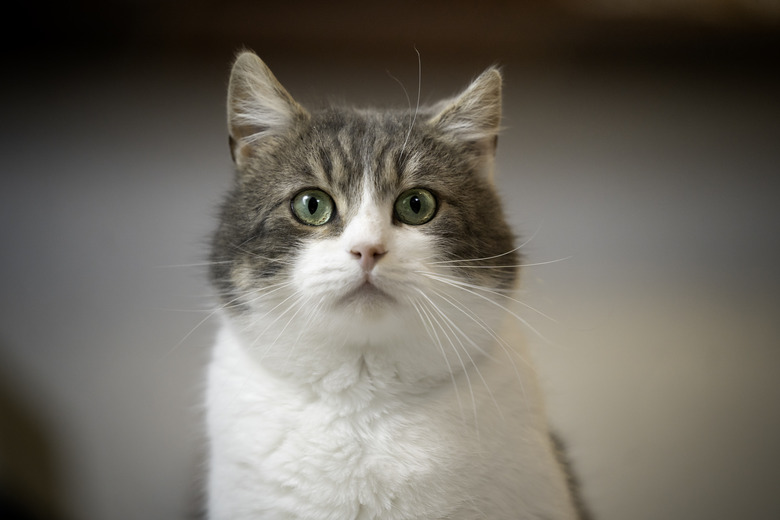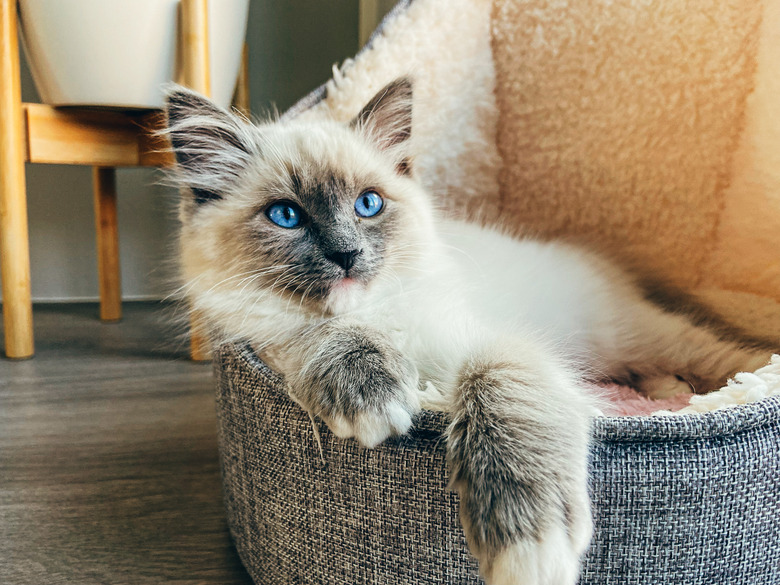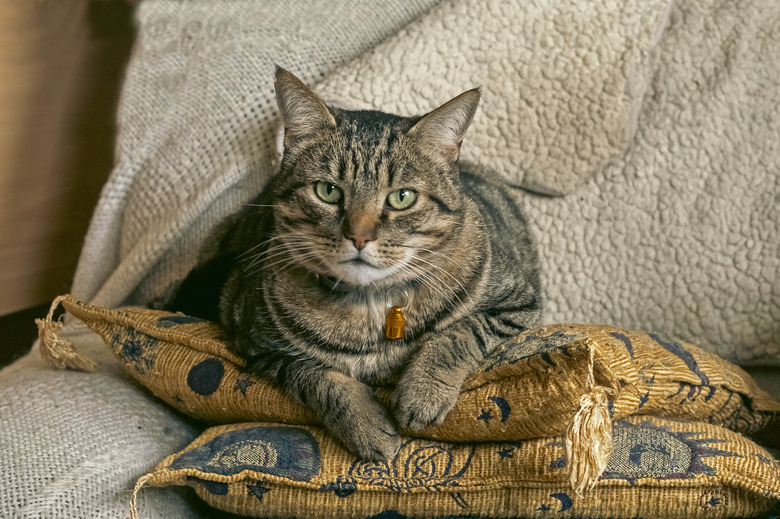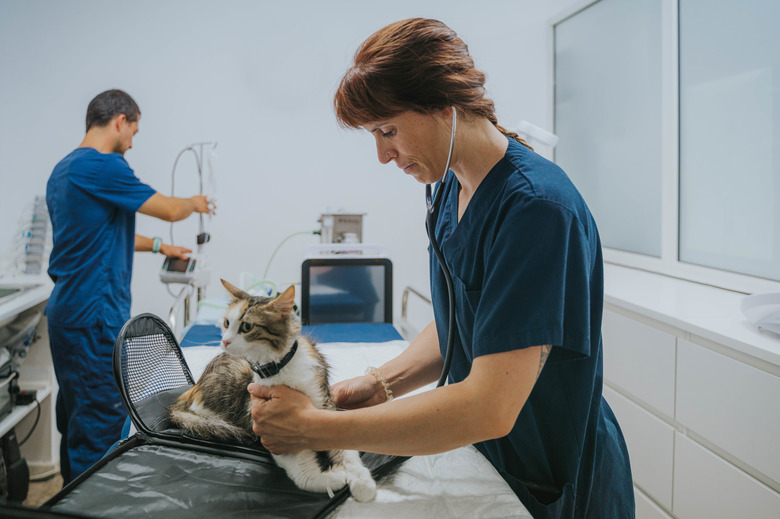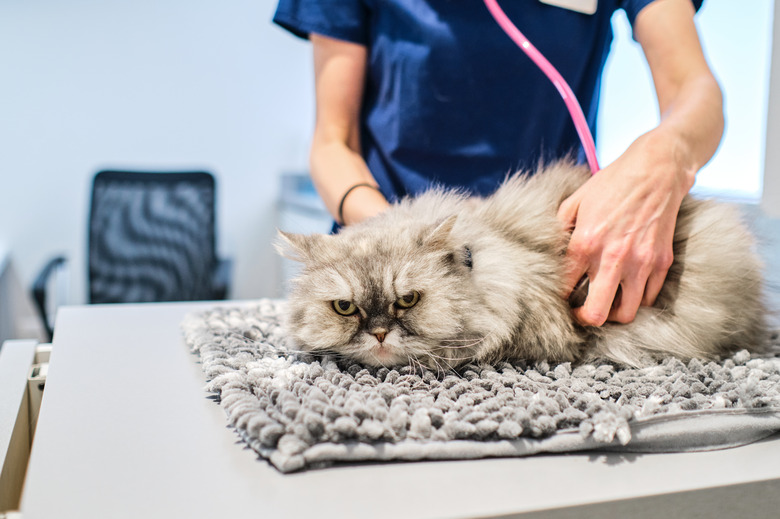Pica In Cats: Why Is My Cat Chewing On Non-Food Items?
Do you have a cat who eats things they shouldn't? Although cats might bite or mouth at toys while they are playing, some cats don't just play with their mouth but they will chew and eat objects that are not food. Eating things, they find around the house can be very dangerous for cats and stressful for cat parents.
What is pica in cats?
What is pica in cats?
Pica is a disorder that causes cats to chew and ingest non-food items. This condition can be dangerous for cats and is frustrating for cat guardians. Cats who struggle with pica will chew on, suck on, and often eat objects that are not food. Because what they are eating isn't edible, pica can make cats very sick from consuming objects that can't be digested. Eating things that are not food can cause cats to choke, or become ill. Cats may eat objects that can cause dangerous gastrointestinal obstructions requiring surgery to remove.
Symptoms of pica in cats
Symptoms of pica in cats
The primary signs of pica to watch for is the behavior of eating, sucking, or chewing on objects that aren't food. If you notice that your cat is chewing on or trying to eat things they shouldn't, it's important to remove those objects from your cat's area immediately. Cats who eat objects that are not food can become very sick. Objects eaten can lead to intestinal blockages which are very serious. If cats eat objects that are not food, they may be choking, vomiting, have diarrhea, constipation, be straining to go to the bathroom in the litter box, or otherwise seem lethargic and unwell.
Causes of pica in cats
Causes of pica in cats
There are a variety of reasons cats might develop pica. Some cats temporarily will show pica symptoms when they are young kittens and are teething, and pica is common in cats who experienced early weaning, or being separated from their mother and littermates too soon. Pica can be the result of a cat having anemia or being malnourished and have nutritional deficiencies in their diet. Some domestic cat breeds may have a genetic predisposition to pica. Cat breeds that commonly struggle with pica tend to be the "oriental" breeds, specifically Burmese and Siamese cats. Cats may also develop pica and pica behaviors in response to stress and anxiety when moving to a new home, or other stressful situations. For some cats wool sucking, or chewing on non-food items can become a compulsive disorder.
How to treat pica in cats
How to treat pica in cats
Treating pica in cats can be tricky because it's not always obvious what the cause is. To appropriately treat a cat's pica behavior, you and your veterinarian will need to determine the underlying medical conditions causing your cat to eat things that they shouldn't. Your veteran will likely run bloodwork and other tests to make sure your cat doesn't have health issues. This will allow your vet to determine your cat has nutritional deficiencies that could be leading to the behavior. Your vet will review your cat's diet and may recommend changing cat food.
Prevention is key for keeping your cat safe. If your cat has pica you will need to be diligent with cat-proofing your home and removing objects that your cat could chew or eat from areas of your home where your cat is including electrical cords, shoelaces, plastic bags, rubber bands, and other dangerous objects. Instead you'll want to provide lots of safe cat toys and enrichment opportunities including safe chew toys, and cat trees for appropriate playtime. You'll also want to reduce the stress that your cat experiences as anxiety can be a component of leading cats to nibble things they shouldn't. In some cases, your cat's veterinarian may prescribe anti-anxiety medication for your cat, or refer you to an animal behaviorist if that is believed to be an underlying cause of the behavior.
When to see a veterinarian
When to see a veterinarian
Any unusual behavior from your cat should be brought to your veterinarian's attention. Your veterinarian will be able to run tests to determine if your cat has any health conditions that are leading to the pica behaviors. If you know that your cat has been chewing on or trying to eat things that are not food and is acting lethargic, vomiting, or seems unwell, contact a veterinarian immediately. This could be a sign that your cat has an obstruction and needs immediate veterinary care, possibly surgery. In that case your cat will be examined, and if there is an obstruction which could be life-threatening.
The bottom line
The bottom line
If you notice that your cat is starting to chew on objects or eat things that are not food your cat may be struggling with pica. Pica can occur in cats who are struggling with anxiety, were weaned too early, or who are struggling with stress and anxiety. Pica is a dangerous behavior for cats because the non-food things that cats eat can make them very sick. Cats can ingest objects that will cause them to choke. Cats can also eat items that are too large to pass and cause intestinal blockages that require emergency surgery.
